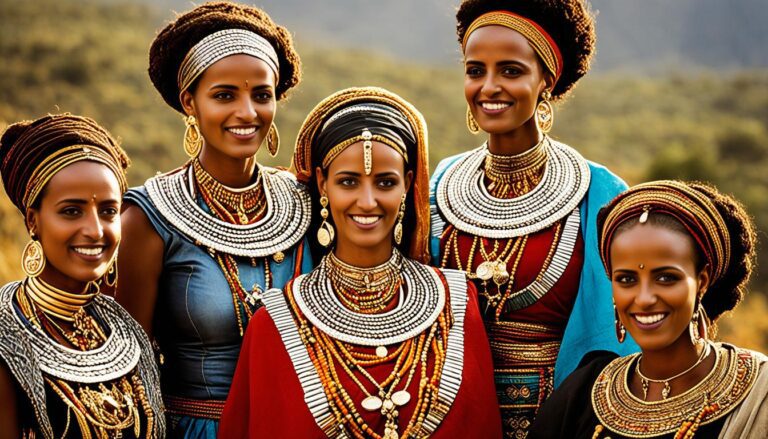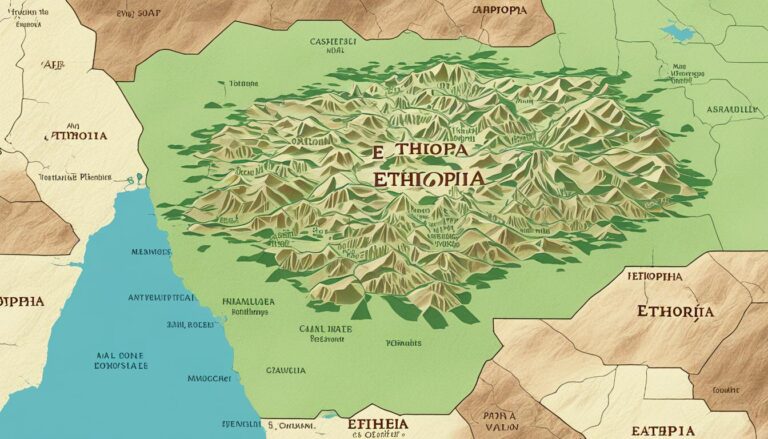What Are Some Traditional Sports Or Games In Ethiopia?
Traditional Sports and Games in Ethiopia: Preserving Cultural Heritage
Ethiopia, a country known for its rich cultural heritage, boasts a variety of traditional sports and games that have been passed down through generations. These activities not only serve as sources of entertainment but also hold significant cultural value for the Ethiopian people. Let’s delve into some of the most popular traditional sports and games that are enjoyed in Ethiopia.
One of the well-known traditional sports in Ethiopia is "Genna," which is a form of hockey played with a curved stick and a round wooden ball. Genna is often played during the Ethiopian Christmas season and is a favorite pastime for many Ethiopians. Another popular sport is "Wrestling," where participants engage in physical combat to test their strength and agility. Wrestling matches in Ethiopia are not only about showcasing physical prowess but also about displaying sportsmanship and honor.
In addition to sports, Ethiopia is also home to various traditional games that are played by people of all ages. "Gebeta," a traditional board game similar to chess, requires strategic thinking and skillful maneuvers to outwit the opponent. Younger generations often engage in games like "Gebeta" to hone their cognitive abilities while staying connected to their cultural roots.
These traditional sports and games play a vital role in preserving Ethiopia’s cultural identity and heritage. They serve as a link to the past, connecting the present generation with their ancestors and the traditions that have been upheld for centuries. By participating in these activities, Ethiopians not only celebrate their cultural diversity but also pass down valuable skills and knowledge to future generations.
As modernization continues to influence various aspects of Ethiopian society, traditional sports and games face the challenge of remaining relevant in a rapidly changing world. However, efforts are being made to promote and preserve these cultural treasures. Through cultural festivals, community events, and educational programs, Ethiopia is working to ensure that traditional sports and games continue to thrive and remain an integral part of its cultural fabric.
Traditional sports and games in Ethiopia are more than just recreational activities; they are symbols of cultural pride and unity. By embracing and preserving these traditions, Ethiopians are not only honoring their past but also laying the foundation for a vibrant cultural future. May these traditional sports and games continue to be cherished and celebrated for generations to come.
Traditional Ethiopian sports and games have a rich history and cultural significance that dates back centuries. These activities are deeply ingrained in the Ethiopian cultural fabric and play a vital role in connecting communities and preserving traditions. One of the most popular traditional sports in Ethiopia is Genna, a form of hockey that is played during the Ethiopian Christmas celebrations. Another widely practiced sport is called ‘Yegena Chewata,’ a sport similar to wrestling where participants try to force each other out of a designated area.
These traditional sports hold significant cultural value for Ethiopians, serving as a way to connect with their heritage and ancestors. The games are often passed down from generation to generation, making them an integral part of Ethiopian identity. They are also a way to honor and celebrate the country’s rich history and traditions, offering a glimpse into the past and showcasing the resilience and strength of the Ethiopian people.
When comparing traditional Ethiopian sports with modern sports, one can see both differences and similarities. While modern sports often have a global appeal and standardized rules, traditional Ethiopian sports are deeply rooted in local culture and customs. However, both types of sports share the common goal of promoting physical activity, teamwork, and healthy competition.
Moreover, traditional Ethiopian sports play a crucial role in promoting community bonding and social cohesion. These activities bring people together, fostering a sense of unity and solidarity among community members. They provide a platform for social interaction, communication, and mutual support, strengthening the social fabric of Ethiopian society.
As globalization continues to influence various aspects of Ethiopian culture, traditional sports are also facing changes and adaptations. While some traditional sports have managed to withstand the test of time and remain popular, others have evolved or faded away with the influence of modernization. However, many Ethiopians are making efforts to preserve and promote their traditional sports as a way to safeguard their heritage and maintain a connection to their roots in the face of globalization’s challenges.
Comparison of Traditional Ethiopian Sports with Modern Sports
Traditional sports hold a significant place in Ethiopia’s cultural heritage, with many activities dating back centuries. These sports play a crucial role in connecting communities and preserving the country’s rich traditions. However, in recent years, modern sports have gained popularity, bringing new dynamics to the sporting landscape in Ethiopia. This article will explore the key differences between traditional Ethiopian sports and modern sports, highlighting how each contributes uniquely to the country’s sporting heritage.
Traditional Ethiopian sports are deeply rooted in the country’s history and have strong cultural significance. One of the most well-known traditional sports is "Genna," a form of hockey that is played during the Ethiopian Christmas season. The game is a symbol of community unity and is often accompanied by festivities and celebrations. In contrast, modern sports in Ethiopia, such as football and athletics, have gained international recognition, with Ethiopian athletes excelling in long-distance running at the Olympics and other prestigious events.
While traditional Ethiopian sports emphasize cultural unity and heritage, modern sports focus more on competition and athleticism. For example, traditional sports like "Daber" and "Gugs" involve teamwork and cooperation among participants, reflecting the communal values of Ethiopian society. On the other hand, modern sports like football and track and field prioritize individual achievement and performance, resonating with global sporting trends.
Another key difference between traditional Ethiopian sports and modern sports is the level of organization and infrastructure. Traditional sports are often played informally in local communities, with minimal equipment and resources required. In contrast, modern sports require significant investments in facilities, training programs, and coaching staff to compete at a high level. This shift towards modern sports has led to increased professionalization and commercialization of sports in Ethiopia, creating new opportunities for athletes and sports enthusiasts.
Despite these differences, both traditional Ethiopian sports and modern sports play a vital role in promoting physical fitness, teamwork, and social cohesion. While traditional sports celebrate Ethiopia’s cultural heritage and values, modern sports provide avenues for athletes to achieve excellence on the global stage. By embracing both traditional and modern sports, Ethiopia can create a diverse and inclusive sporting culture that honors its past while embracing the future.
Role of Traditional Sports in Promoting Community Bonding
Traditional sports in Ethiopia play a vital role in promoting community bonding and fostering social cohesion. These sports are not just physical activities but are deeply rooted in the country’s culture, history, and traditions. Engaging in traditional sports strengthens the social fabric by bringing people together, irrespective of age, gender, or background. It provides a platform for community members to interact, collaborate, and form lasting relationships.
One significant aspect of traditional Ethiopian sports is that they are often played in groups or teams. Whether it’s a game of Gena, a type of hockey played with sticks and balls during the Ethiopian Christmas celebrations, or a game of Weyin, a form of Ethiopian wrestling, these activities require coordination, teamwork, and mutual support. Through these team sports, individuals learn the value of cooperation, communication, and collective effort, thereby fostering a sense of unity and camaraderie within the community.
Moreover, traditional sports serve as a medium for passing down cultural values, norms, and practices from one generation to another. As children participate in these age-old games, they not only learn the rules and techniques of the sport but also imbibe the cultural heritage embedded within them. This transmission of knowledge and traditions through sports creates a sense of continuity and shared identity among community members, contributing to a strong sense of belonging and solidarity.
Additionally, participating in traditional sports fosters a sense of pride and belonging among community members. Whether it’s the iconic game of Genna, which symbolizes the victory of good over evil, or the energetic dance competitions like Eskista, traditional sports are imbued with symbolic meanings and historical significance. By engaging in these activities, individuals feel connected to their roots, their ancestors, and their cultural identity, thereby strengthening their bond with the community at large.
Traditional sports in Ethiopia serve as a powerful tool for promoting community bonding, social integration, and cultural preservation. By engaging in these age-old games, community members not only stay physically active but also forge enduring relationships, pass down traditions, and instill a sense of pride and belonging. As these traditional sports continue to thrive in modern times, they remain a testament to Ethiopia’s rich cultural heritage and the enduring spirit of community solidarity.
Traditional sports and games hold a significant place in Ethiopian culture, reflecting the country’s rich heritage and values. As globalization continues to influence various aspects of life in Ethiopia, traditional sports face both challenges and opportunities in maintaining their relevance and popularity. The impact of globalization on traditional sports in Ethiopia has been a subject of interest and concern among enthusiasts and cultural preservationists.
One of the main effects of globalization on traditional sports in Ethiopia is the introduction and spread of Western sports and games. With the increasing access to international media and exposure to global trends, traditional sports are facing competition from modern sports like football, basketball, and tennis. This shift in interest towards Western sports poses a threat to the survival of traditional Ethiopian games, as younger generations are more drawn to the excitement and glamour associated with modern sports.
Furthermore, globalization has led to changes in lifestyle and leisure activities among Ethiopians, affecting the practice and promotion of traditional sports. As urbanization and modernization continue to transform Ethiopian society, traditional sports are at risk of being overshadowed by more contemporary forms of entertainment and recreation. The shift towards sedentary lifestyles and digital distractions has also contributed to a waning interest in traditional physical activities, further challenging the preservation of these cultural practices.
On the positive side, globalization has also presented opportunities for the promotion and preservation of traditional sports in Ethiopia. Increased connectivity and communication channels have enabled the sharing of Ethiopian cultural practices with a global audience, raising awareness and generating interest in traditional sports. International recognition and support for traditional Ethiopian sports can help in revitalizing and sustaining these valuable aspects of the country’s cultural heritage.
While globalization poses challenges to the survival of traditional sports in Ethiopia, it also offers avenues for their revitalization and preservation. By embracing modern tools and platforms to promote traditional sports, Ethiopia can ensure that these valuable cultural practices continue to thrive and evolve in an increasingly interconnected world.
Conclusion
Traditional sports and games in Ethiopia are deeply rooted in the country’s history and culture, showcasing the rich heritage of its people. These activities serve as not just physical pastimes, but as vessels of tradition, community bonding, and cultural preservation. Throughout the years, traditional Ethiopian sports have retained their cultural significance, playing a vital role in maintaining the country’s identity and heritage.
When compared to modern sports, traditional Ethiopian sports offer a unique perspective on the importance of community, unity, and cultural preservation. While modern sports often emphasize individual achievements and competition, traditional sports in Ethiopia focus on teamwork, cooperation, and inclusivity. These values are ingrained in the fabric of Ethiopian society, promoting harmony and a sense of belonging among community members.
The role of traditional sports in promoting community bonding cannot be understated. These activities bring people together, regardless of age, gender, or social status, fostering a sense of unity and togetherness. Whether it’s through a game of Genna or a match of Dabo-Genna, traditional sports provide a platform for social interaction, mutual respect, and shared experiences, strengthening the bonds that hold communities together.
As globalization continues to shape the modern world, traditional sports in Ethiopia face both challenges and opportunities. While the influence of globalization has led to the introduction of modern sports and recreational activities in the country, traditional Ethiopian sports have managed to adapt and evolve, finding new ways to thrive in a changing world. With the increasing interconnectedness of societies, there is a growing appreciation for the value of preserving traditional sports as a way to safeguard cultural heritage and promote diversity.
In essence, traditional sports and games in Ethiopia serve as a testament to the country’s rich history, cultural diversity, and spirit of community. These activities not only provide entertainment and recreation but also embody the values and traditions that have been passed down through generations. By recognizing the significance of traditional Ethiopian sports and embracing their role in society, we can ensure that these timeless pastimes continue to flourish and inspire future generations to cherish and celebrate their cultural heritage.





